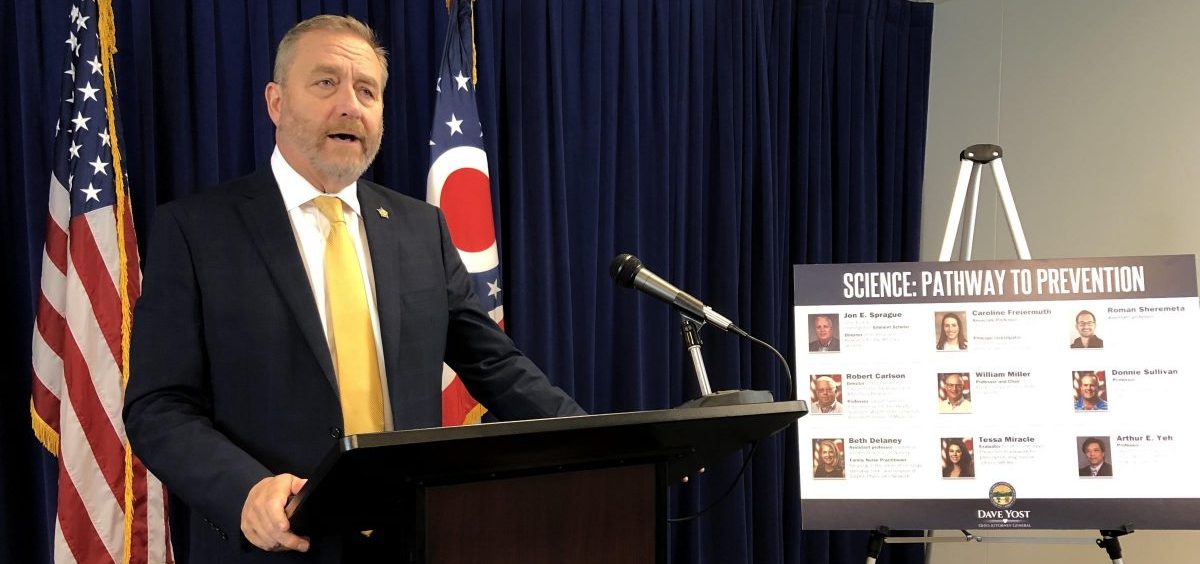News

Ohio Putting $1.6M Toward Genetic Study Of Addiction
By: Andy Chow | Statehouse News Bureau
Posted on:
Ohio Attorney General Dave Yost is backing a study to take an in-depth look at the genetic factors behind substance use disorder. Yost believes this will be a critical step towards data-based prevention efforts.
Yost says the common approach to the opioid epidemic is referred to as a three-legged stool; law enforcement, treatment, education/prevention. But he says the state should separate prevention from education and consider it as a fourth leg.
“Education, while it’s necessary, is not enough,” says Yost. “And prevention is different, education says ‘we’re going to give you information so you can make an informed choice.’ But sometimes people make bad choices even when they’re informed. Prevention is the side that says ‘how are we going to help prevent or stop new addictions?” says Yost, explaining how the study will be a step in that direction.
Attorney General Dave Yost says Prevention and Education usually get grouped together when addressing the opioid epidemic. But Yost says Prevention needs it’s own special attention, making it “the fourth leg of the stool” pic.twitter.com/ZelGfyFOdt
— Andy Chow (@andy_chow) October 3, 2019
The study will be conducted through emergency departments at the University of Cincinnati Medical Center and the Ohio State University Wexner Medical Center. Up to 1,500 patients will be recruited through a screening process to participate in the study. Those participants will provide a DNA sample.
Yost says he wants this study to achieve three main goals:
Determine which genetic markers are associated with the development of opioid use disorder
Develop an “Addiction Risk Score” to better classify patient likelihood for future opioid use disorder
Determine the prevalence of genetic markers associated with addiction risk in the general population.
Caroline Freiermuth associate professor of emergency medicine at University of Cincinnati, says this study will recruit 1,500 emergency department patients from UC and OSU to study genetic markers pic.twitter.com/Joo6On2hIJ
— Andy Chow (@andy_chow) October 3, 2019
The research team will include scientists from Ohio State University, University of Cincinnati, Bowling Green State University, and Case Western Reserve University.
The state will send the DNA samples to Genemarkers, a genomic research company based in Michigan, to analyze the data. InXite, a health system company based in Columbus, will provide researchers for advanced algorithm processing.
Yost assures that “stringent” measures will be taken to protect the privacy of the participants.
Jon Sprague, director of science and research for the Ohio Attorney General’s Office, will be co-leading the study. He says they’re focusing on single-nucleotide polymorphism or SNPs.
“We’re targeting those specifically for reward pathways and for opioids.” Sprague says, explaining the difference between this kind of analysis compared to commonly-used DNA companies such as “23 and Me” and “Ancestry.”
Yost says a second initiative is a task force made up of experts in medical and behavioral fields that focuses on prevention techniques and strategies.
The genetic study will cost about $1.6 million to fund and could take up to 18 months.

